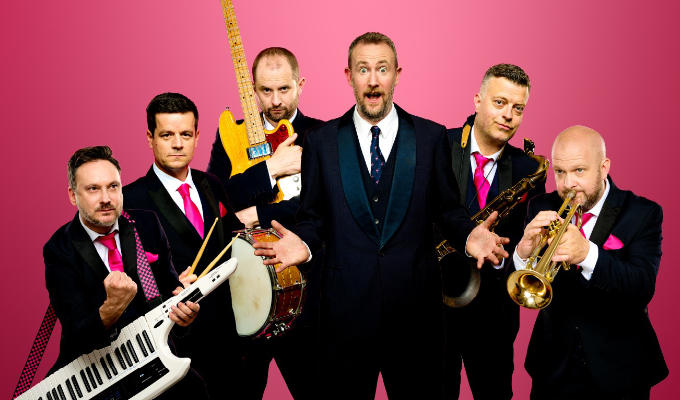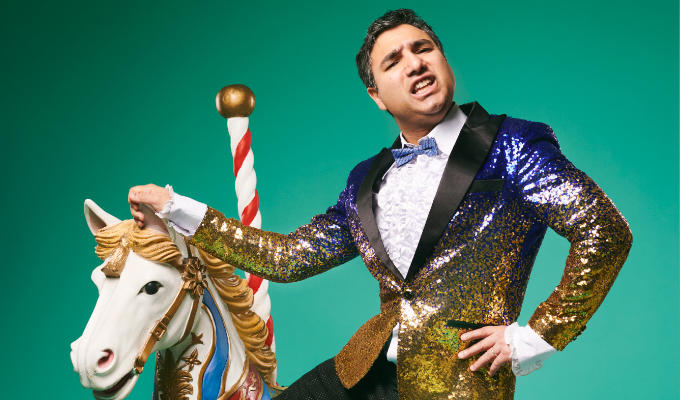Sachs and drugs and rock-and-roll comedians
Dave Cohen promises not to express an opinion about you-know-what...
Is there anyone left in Britain yet to make their feelings known about (I can barely bring myself to type it) the ‘Brand-Ross affair’?Last week it was Ricky Gervais’s turn to join in, although as someone who knows both protagonists he may at least offer some new insight. Unlike, say, David Cameron, Gordon Brown, Richard Littlejohn, Jeremy Vine, my greengrocer, Theodore Dalrymple of the Social Affairs Unit (I kid you not), and John Cleese.
I was determined not to get involved but what the heck, it seems that ownership of a TV Licence is enough to make anyone an expert on the affair. However, I thought I’d take a novel if controversial approach. This is to examine the story in what used to be known in journalist circles as ‘factually’. I promise to do my best to avoid opinions in the writing of this article.
Let’s begin with comedy, in its earliest forms, namely the plays of Aristophanes. These were most famous for poking fun at the establishment, bawdiness and a willingness to shock. So if they’d had answerphones 2,500 years ago the messages wouldn’t have been much different.
That was about as funny as the Greeks ever got, until Demetri Martin. From then on ’twas our very own English language where the biggest laughs were to be found, from court jesters through Chaucer to Shakespeare. You want bawdy humour and an outraged establishment? Go no further.
At this point I should mention that my grasp of facts is somewhat Wikipediesque. At least trust me that the above were all English. But I should probably should skip a few centuries - stopping only for another English den of iniquity and smut, the Music Hall (popularised, ironically, by Andrew Sachs’s father Leonard in The Good Old Days) - and head to more familiar ground.
The USA in the early 1960s was a country still struggling with its identity after World War Two. Alienation of the younger generation, later to manifest itself in the Civil Rights movement and anti-war protests, had already been articulated by Lenny Bruce, the first truly alternative comedian, who understood the power of language to shock. In the 1960s the shock factors in live comedy were about language as a political weapon, and the empowerment of poor people and minorities through humour
In 1970s Britain, live comedy was about the language of fear. A generation of comedians had been raised by emotionally distant fathers who had enjoyed the war and realised life would never be so exciting again, and mothers who had enjoyed the freedom of working during the war and were now forced back into a life of drudgery – the battleaxe mother-in-laws who became a misogynist staple of that era. In addition to this fear of women came of course fear of the newly arrived foreigners.
Alternative comedy blew much of the racist stuff away (for a short time), although what modest attempts were made to curtail ‘non-sexist’ language were mocked and generally ignored by all but the most earnest and visual of stand-ups. If there was ever a time when the comedy circuit was non-sexist I for one never spotted it.
What did develop in the 1980s was the sense that you went to a comedy club partly because you knew that sometimes what was said would be too shocking to be heard on TV. The kind of stuff you would only ever hear in ‘the room’.
The concept of ‘the room’ is an important one in comedy. As a writer I’ve worked in many comedy rooms where I’ve heard (and, am afraid, have said) far more shocking things than I’ve ever heard at a comedy club (including in the dressing room). Often, when a writer makes a shockingly hilarious comment, another will say ‘that was for the room.’ It’s excused as being part of the creative process, or letting off steam.
There was a famous case in the States where a writing assistant in the ‘Friends’ room tried, unsuccessfully, to sue the writers for stress caused by the hideous sexist and racist banter she had to sit through. Sorry honey, it was ‘the room’ – and in their defence, they were able to point to the 200-plus episodes and show that not one word of it ever made it onto the screen.
What changed in the early 90s – and here we see the origins of this affair - was that a number of younger TV executives discovered comedy clubs, and the power of ‘the room’. Specifically, and independently, Janet Street Porter, Bob Geldof and Jonathan Ross all produced shows for Channel Four that sought to bring the shock element of ‘the room’ onto our screens.
While these shows, including Network 7, The Big Breakfast and Saturday Zoo rarely gained an audience, they spawned a host of independent TV companies, which became the training ground for a new generation of TV and radio producers and presenters who genuinely thought they were breaking new ground, and not merely copying live comedy, by producing seemingly shocking programmes. (The existence of such programmes and such companies had been made possible, of course, by the last Conservative government, whose direct interference in TV production in the late 1980s was designed to cause maximum damage to the BBC.)
Around the same time, cocaine became the ubiquitous tipple of employees in the TV industry. The ultimate ‘empowerment without responsibility’ drug. If you weren’t upsetting older sensibilities then you were doing something wrong. These are the people, whose careers began in the early 1990s, who now control huge areas of the TV and radio entertainment industry. What’s surprised me the most (if I can allow myself one opinion) is that it took so long for such an incident as this to happen.
So what will be the end result? For the losers, life goes on. Ross seems to have shown great remorse in public, although given his track record over nearly two decades that telephone call was hardly a ‘moment of madness’. And you can see Brand, even as he’s genuinely regretting the loss of his radio series, consoled by the fact that he’s found something on which to hang volume two of his booky wook.
I don’t reckon the circuit will change much. The intellectually lazy confusion of shock and misogyny is as prevalent as ever, a reminder of a different Good Old Days - the 1970s, when wife-beating gags were the order of the day, and even Wendy Craig could make jokes about women and rape fantasies in BBC1 family sitcoms.
For the winners - the Daily Mail, whose hysterical hypocritical onslaught against the BBC for purely commercial reasons was responsible for whipping up the frenzy behind this medium-sized scandal - this will embolden them to attack the BBC even more. Maybe now, the editor will finally see fit to point the finger at the one person whose de-regulatory acts in the 1980s did so much to create this culture of obscenity, swearing and dumbing-down on TV and radio - Margaret Thatcher. Don’t hold your breath.
Published: 11 Dec 2008






